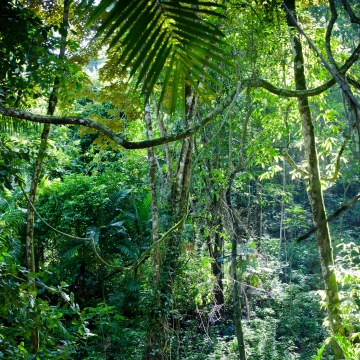Group decisions over the allocation of REDD payments: An example from Tanzania
REDD – Reduced Emissions from Deforestation and Forest Degradation – is a new form of payment for environmental services that has to potential to fund forest protection in Tanzania. A key challenges
Improving forest management in Tanzania
Understanding patterns of access rights, investments, and enforcement
Private Trees as Household Assets and Determinants of Tree-Growing Behavior in Rural Ethiopia
This study looked into tree-growing behavior of rural households in Ethiopia. With data collected at household and parcel levels from the four major regions of Ethiopia, we analyzed the decision to grow trees and the number of trees grown, using such econometric strategies as a zero-inflated negative binomial model, Heckman’s two-step procedure, and panel data techniques.
Incomplete Property Rights, Exposure to Markets and the Provision of Environmental Services in China
This paper uses data from a 2003 rural survey to examine the determinants of household provision of environmental services under China’s Sloping Land Conversion Program (SLCP), the largest payment for environmental services program in the developing world.
Impacts of Policy Measures on the Development of State-Owned Forests in Northeastern China: Theoretical Results and Empirical Evidence
State-owned forest enterprises (SOFEs) in northeast China and Inner Mongolia play important roles both in timber production and in the maintenance of ecological security. However, since the late 1970s, forest resource and economic crises have seriously restricted these functions.
Efficiency, enforcement and revenue tradeoffs in participatory forest management: an example from Tanzania
Where joint forest management has been introduced into Tanzania, ‘volunteer’ patrollers take responsibility for enforcing restrictions over the harvesting of forest resources, often receiving as an incentive a share of the collected fine revenue.

REDD may lead to the revival of colonialism
“If we aren’t careful, a system like REDD may lead to a revision of colonialism. The crucial problem is that we in Tanzania don´t have the required facts about our own forests,” said Professor Claude…
REDD may lead to the revival of colonialism
“If we aren’t careful, a system like REDD may lead to a revision of colonialism. The crucial problem is that we in Tanzania don´t have the required facts about our own forests,” said Professor Claude

Environmental Valuation course draws participants from around world
21 researchers and PhD students from across the globe currently attend the course Environmental Valuation that is held at School of Business, Economics and Law, University of Gothenburg in Sweden 7…
Pagination
- Previous page
- Page 57
- Next page

